Muhindo Mutundi, New Talent Group for the Best Future
Transforming the Pain of the Past into Hope (and Skills!) for the Future... Plus Guitars!
Meet Muhindo Mutundi, a 24-year old Congolese refugee living in the Nakivale Refugee Settlement in Uganda. He is a self-described ChangerMaker, Artist, Coach, Refugee Youth Ambassador, and Child Rights Advocator and Motivator. And, as we will find out later, a crafter of hand-made guitars!
First, as an aside, but an important one, I’d like to thank
for introducing me to Muhindo. She has an extensive network of ChangeMaker contacts in the fields of education and permaculture at both Nakivale (Uganda) and Kakuma (Kenya) Refugee Camps. I’m grateful for her help in filling out my 61-day challenge! Now, back to Muhindo!Muhindo is the founder and director of New Talent Group for the Best Future (NTGBF) a Community-Based Organization established in January 2020 to provide support, hope, and encouragement to refugee children and youth living at Nakivale, many of whom are orphans, do not know English, and are not attending school. Members of NTGBF do this by providing English-language and art lessons to refugee children. They have 8 official young adult members and 3 volunteers who help teach.
Arriving Alone as a Refugee
Muhindo fled persecution, conflict and war in his home country of Democratic Republic of Congo in 2014. He was escorted by a friend of his father’s along with his sister, younger than him by two years from DRC to Uganda and dropped off in the city of Kampala to fend for themselves. Muhindo and his sister, like many other young refugees, lived as street children for one month in Kampala. Not surprisingly, life was very hard.
It was there in Kampala that he was acccidentally separated from his sister. To this day he does not know where she is. “I lost her. To this day, I always look on the internet to try to find her; but I haven’t ever found her,” he says.
One way out of his situation in Kampala was to petition the Office of the Prime Minister of Uganda (the governmental agency which is responsible for providing identification to refugees) to transfer to Nakivale Refugee Settlement. It was granted, and he moved. Alone.
“Living in Nakivale is not easy. When you come here, you feel like you are alone. I’ve just accepted the life that I’m living. There are a lot of things in my past; I’ve passed through a lot of things. I thank God that I’m living and I’m strong.”
Coincidentally, not long after he arrived in Nakivale, he met someone on the street who seemed familiar. While sharing their stories, this person realized that he knew Muhindo’s mother and father. “He told me I can’t live alone and that I should come live with him,” says Muhindo. He has been living with this family friend every since.
Leading the Way Back to Life…
As a refugee youth first in Kampala and then in Nakivale, Muhindo witnessed how refugee youth lived there.
“After losing everything, you are traumatized, you lose hope. When I came here, I found that youth here were living the same. It was very hard for them also. You find that they are taking drugs adn they don’t think about the future. They jsut think that being a refugee is the end of life. We will just die here.”
Muhindo struck up a conversation with someone he met early on - another refugee at Nakivale named Roger - about the challenges of living in Nakivale as a youth. He shared his vision for a better life with Roger:
“I said we could still rebuild hope and get some people together. We can try. I had a lot of friends who just spent their days taking drugs. I said, what if we just get together and share stories and just let go of the things that are in our hearts from the past.”
They had both seen so many of their friends suffering from so long stress, trauma, hunger and disease.
Roger was supportive of the idea to convene and share life experiences. They went to visit their friends who had turned to drugs to numb their pain. They started gathering regularly and sharing stores about their hardships, learning from each other slowly letting go of the pain they held from their pasts. “We began somehow to live again,” he said.
From Sharing Stories to Building an Education Center
From sharing stories with each other informally in 2019 to establishing a youth center teaching English, art, and providing other activities in January 2020 was a challenging and rewarding adventure for Muhindo and his friends.
Despite the COVID epidemic, they continued their group work and started cultivating some maize together. On the way to the maize fields they would see children playing there, not in school, many of them not proficient in English and some of them orphans.
He remembered himself in the same situation, first in Kampala when he had just arrived from DRC and then again in Nakivale as a 14-year old with what seemed like no options or opportunities. He and his friends started engaging with the children, sharing stories and encouraging them to join them. Even though it was COVID, they invited the children to come meet that at home. There they started to teach, in one single room.
After awhile, Muhindo and friends were able to get the support of a local leader who gave them space. They would teach the children outside. No trees, just under the heat of the sun, using a borrowed propped-up blackboard.
They now have their own building with three classrooms that are still under construction.
Supporting Children and Youth Talent through Education, Sports, Art and Social Skills
NTGBF’s mission statement is just that - supporting children and youth talent by giving them access to a wide variety of skills, knowledge, and opportunities with the aim of “building a strong generation where everyone is using their talents to change lives.”
Programming at New Talent Group for a Better Future includes a wide variety of instruction as well as time for creativity, play and sharing stories. They serve 120 children and youth daily, Monday through Saturday, from 8 am to 4 pm.
The goal of the English language program is to provide children with the basic English skills they need to participate in school. Many of the new refugees come from countries where English is not taught or spoken. The official language of Uganda is English. “After the children learn English, they can go back to school. We are currently looking for people to sponsor children so we can help them get back to school which requires some money for supplies and uniforms.”
Getting ready to be in school and stay in school requires more than English skills. Muhindo makes the case that the entire child needs support, their emotional and physical development is also critical. This is why NTGBF also provides other programming (the following is summarized from a program sheet provided by NTGBF):
Sports for Change & Development: Sport promotes social inclusion among different cultures and improves physical and mental wellbeing. Right to play is a human right. We organize games to promote gender equality within the Settlement and equal participation.
Arts and Crafts: Art is a powerful communication technique that can be used to carry and give a message to the world, allowing refugees to share messages and promote peace within different communities.
Storytelling: This activity unites the children, teaching them about historic events, cultures of different nations and civilizations, and stories of successful people and those who have worked to change the world.
Talent Competition: This helps refugee children identify their potential, energies, motivations and capacities so that they can use these abilities in their life for a better future.
NTGBF also does community outreach. They organize informational sessions for refugees to create awareness and share knowledge to support them in their daily life on topics such as human rights, child protection, refguees and citizenship and more.
Building the Education Center, Little by Little
I asked Muhindo: How was he and his friends able to build a structure when refugees only receive $5USD per month per individual? The answer was the same provided by most other groups: they did it little by little, pooling their own money, requesting from international donors on Facebook, and building slowly over time.
The story here was a little different than others I have heard. Some of Muhindo’s friends have small businesses that help them earn a little here and there to contribute to a fund to support the school.
Muhindo, for his part, makes guitars. Not just any guitars, beautiful guitars made from supplies found in and around the settlement.
Hand-Crafted Guitars… A Social Enterprise
Muhindo makes guitars. He sells guitars. And, he use some of the profits from those sales to support the New Talent Group for a Better Future initiative.
Muhindo was surprised when he first saw people in Nakivale making guitars out of local wood. He was interested in learning how and asked the old man if he could become his apprentice. The man required a large fee. Muhindo declined and came back the next day to negotiate. The man was from the same city as Muhindo and the same tribe. After that ice-breaker, the man relented and brought Muhindo on as an apprentice. They are still making guitars together.
I was surprised to learn that people had enough money to buy the guitars. Muhindo says the cost per guitar is $15 which is still possible for people to save up for over time. “Other guitars in the marketplace are from Germany and Japan and they are very expensive. Some people do small jobs, earn a little money and over time are able to pay to purchase a guitar,” he says. “Also, there are musicians who go to big cities like Mbarara and Kampala to play and earn some money.”
Muhindo’s Advice to Aspiring ChangeMakers
Be the change you wish to see. Your actions can inspire and empower others to join your cause. - Muhindo Mutundi, NTGBF







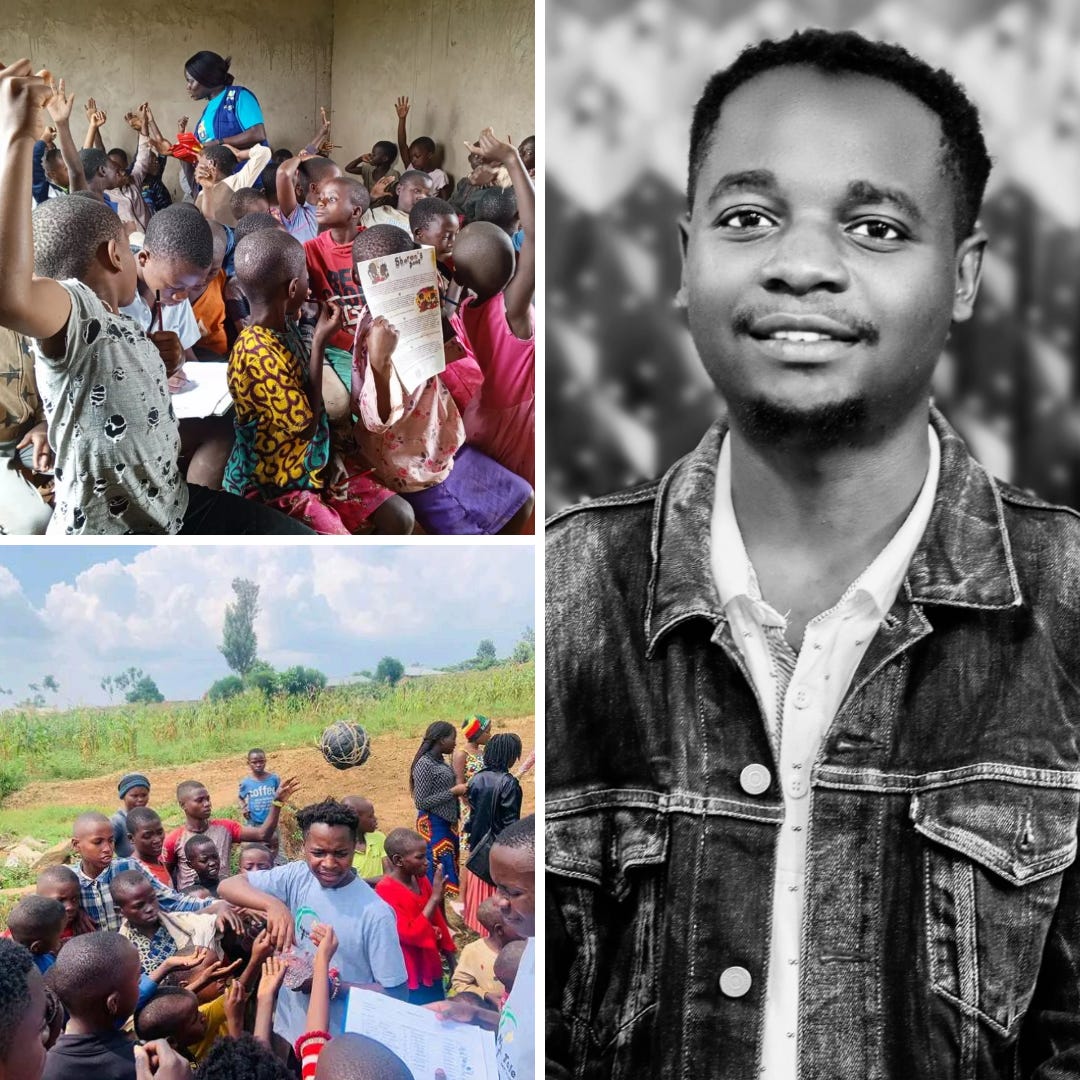
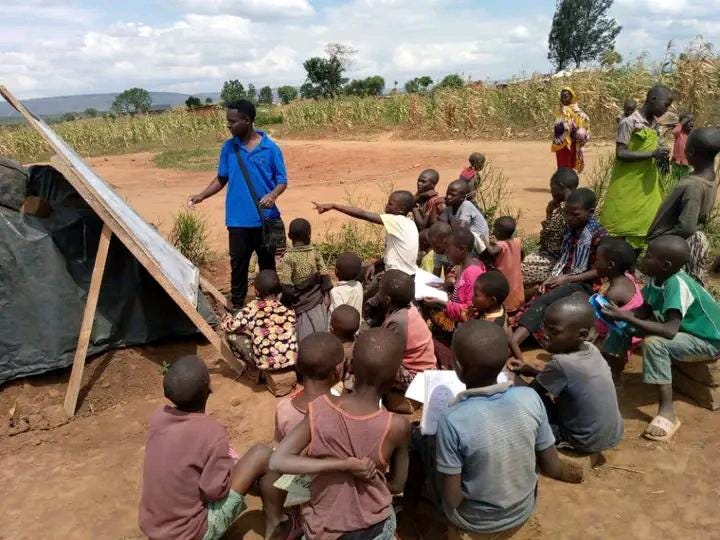
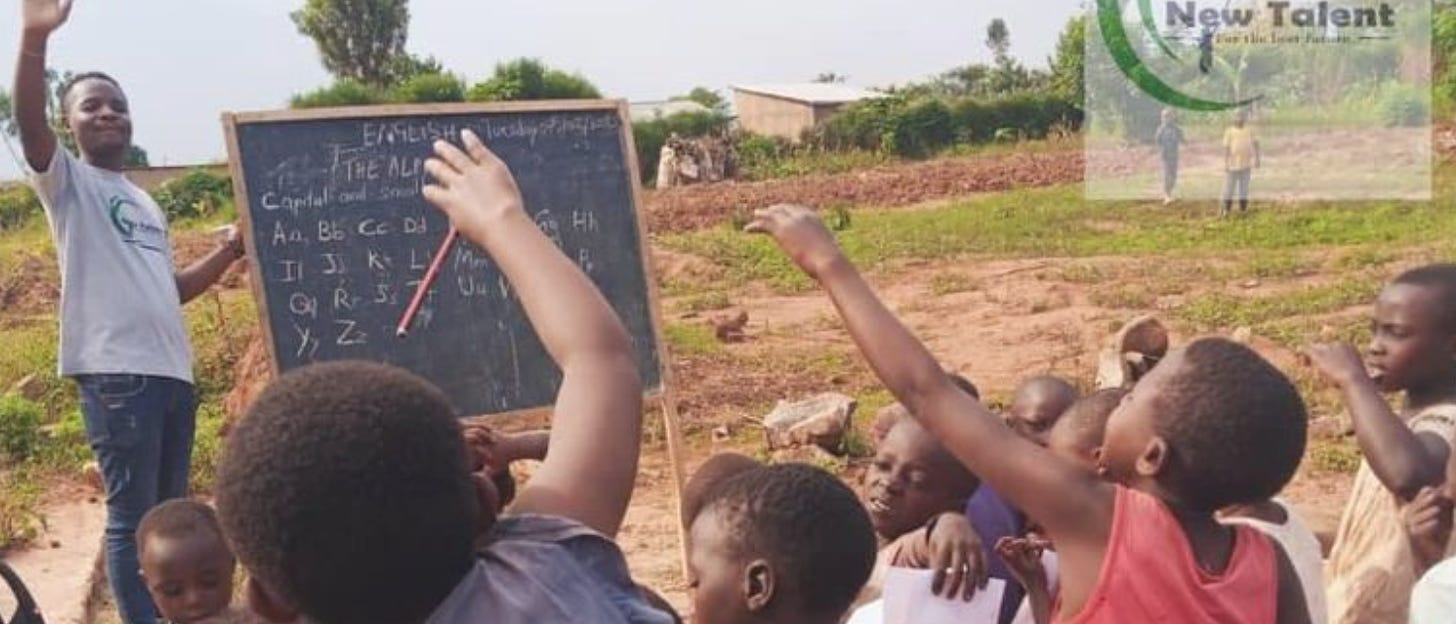
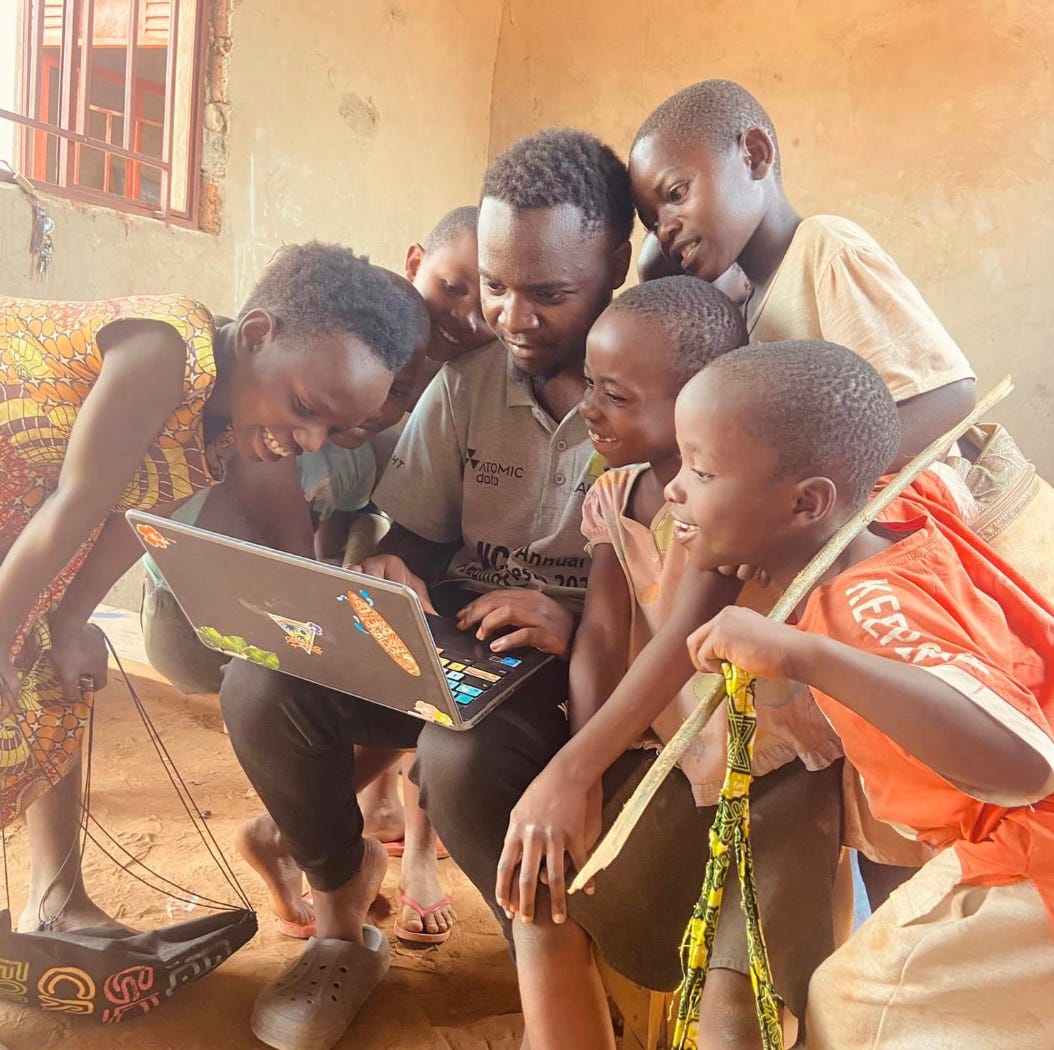
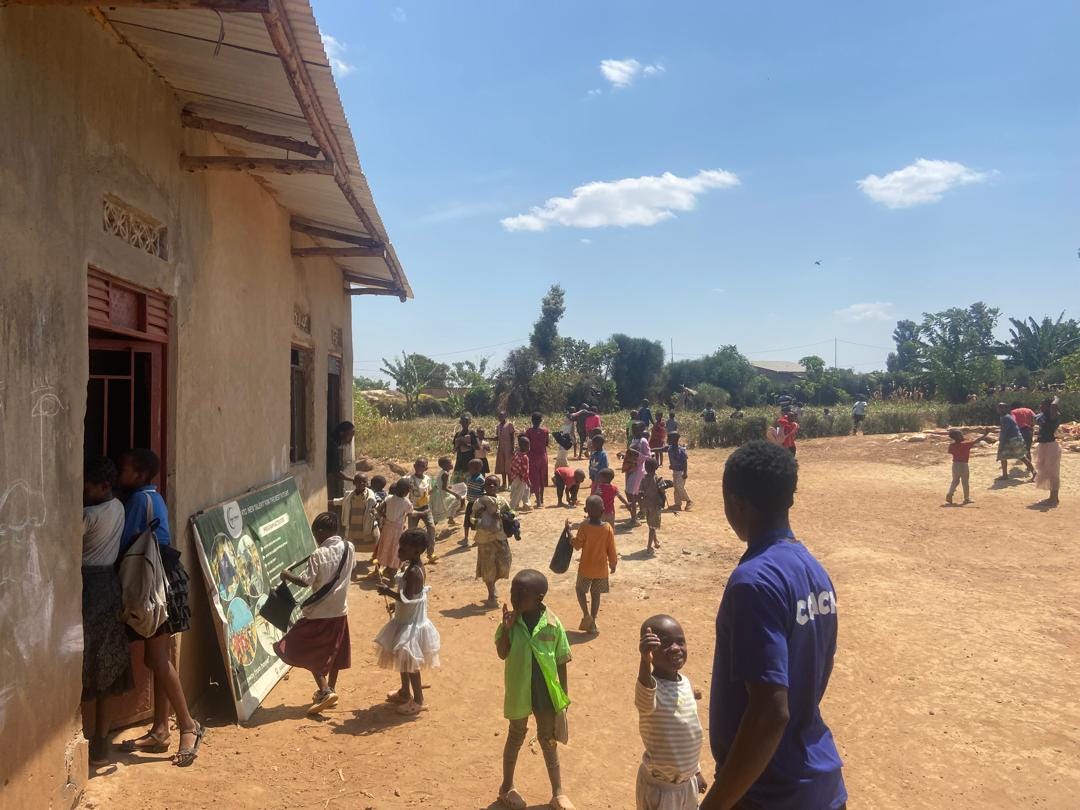
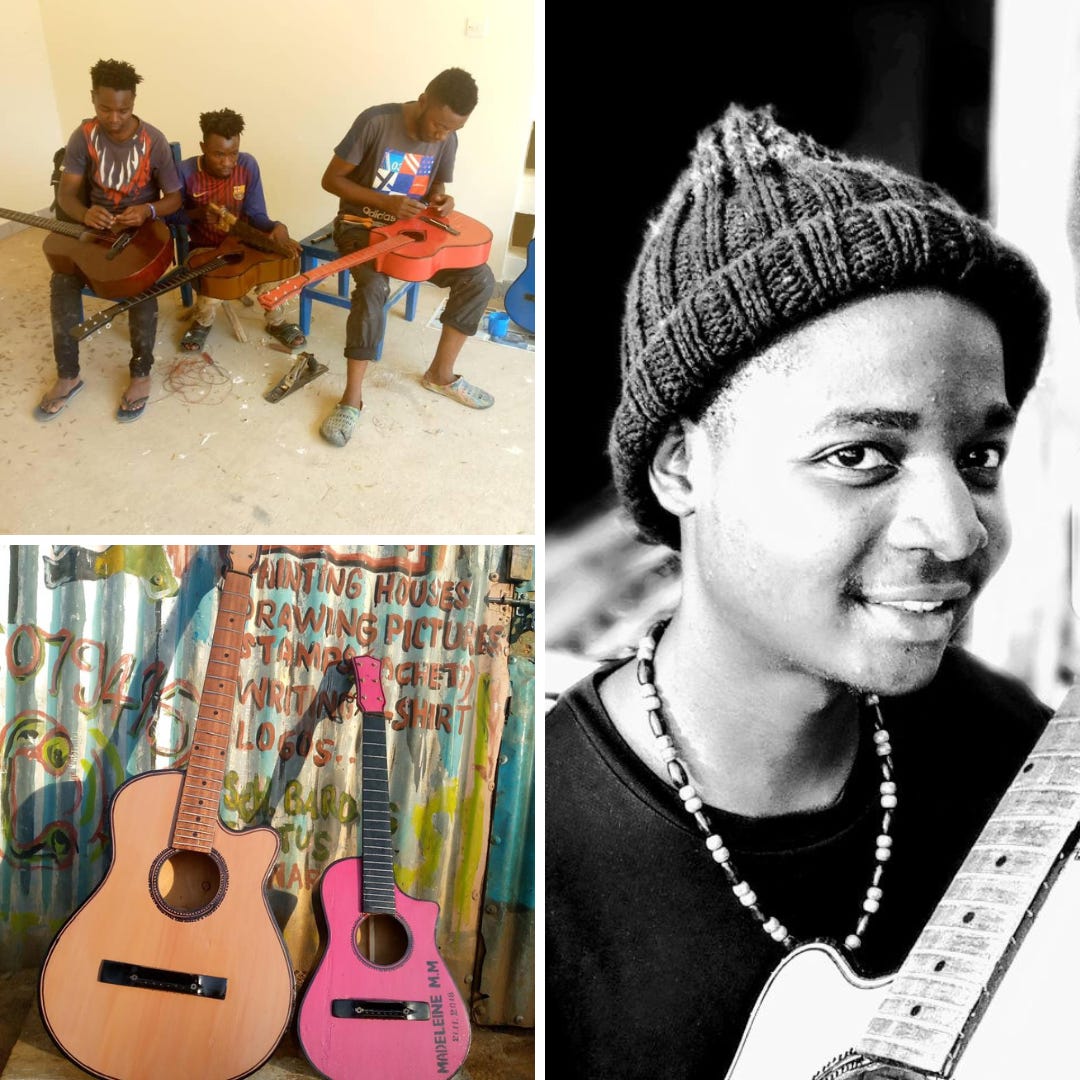
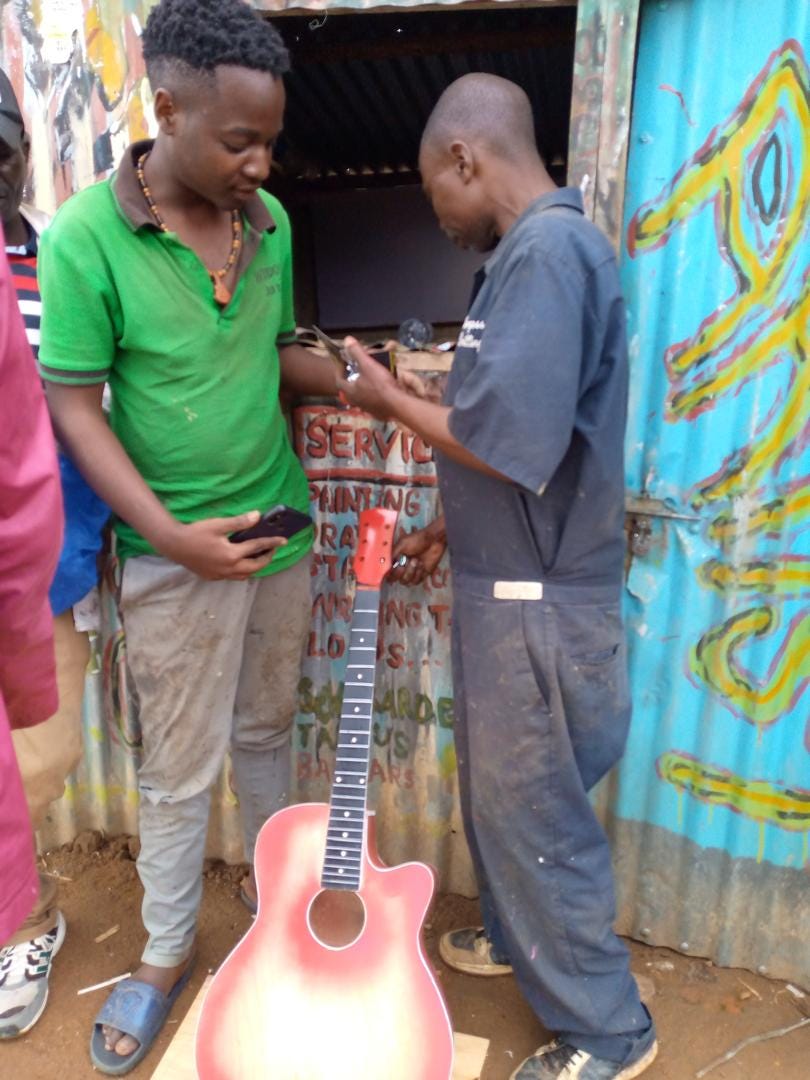
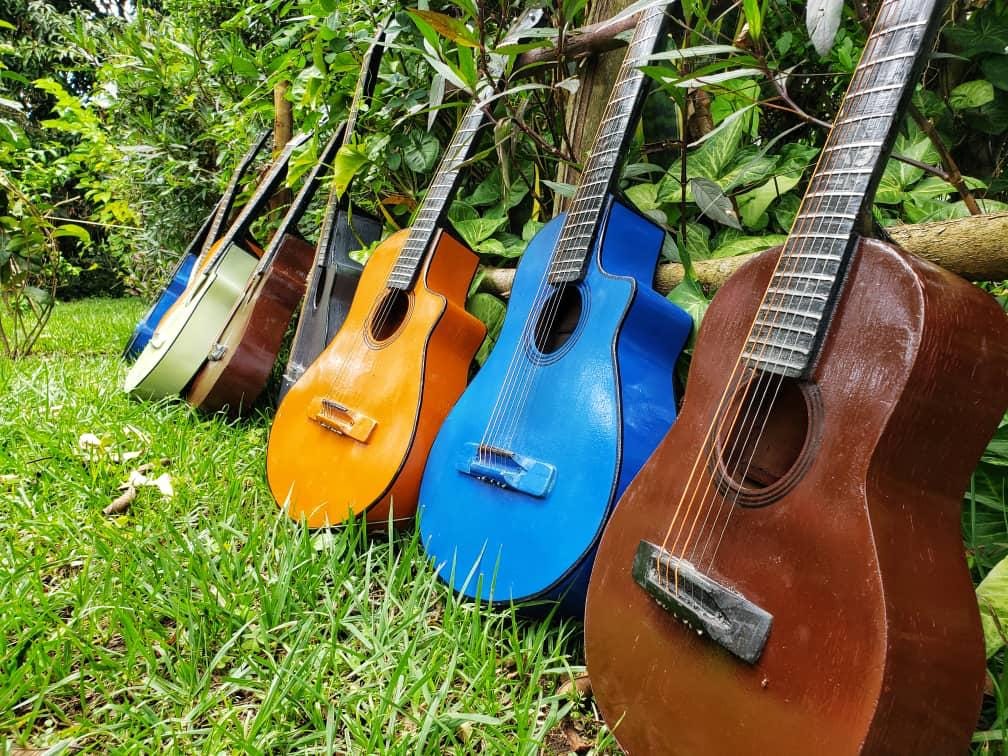
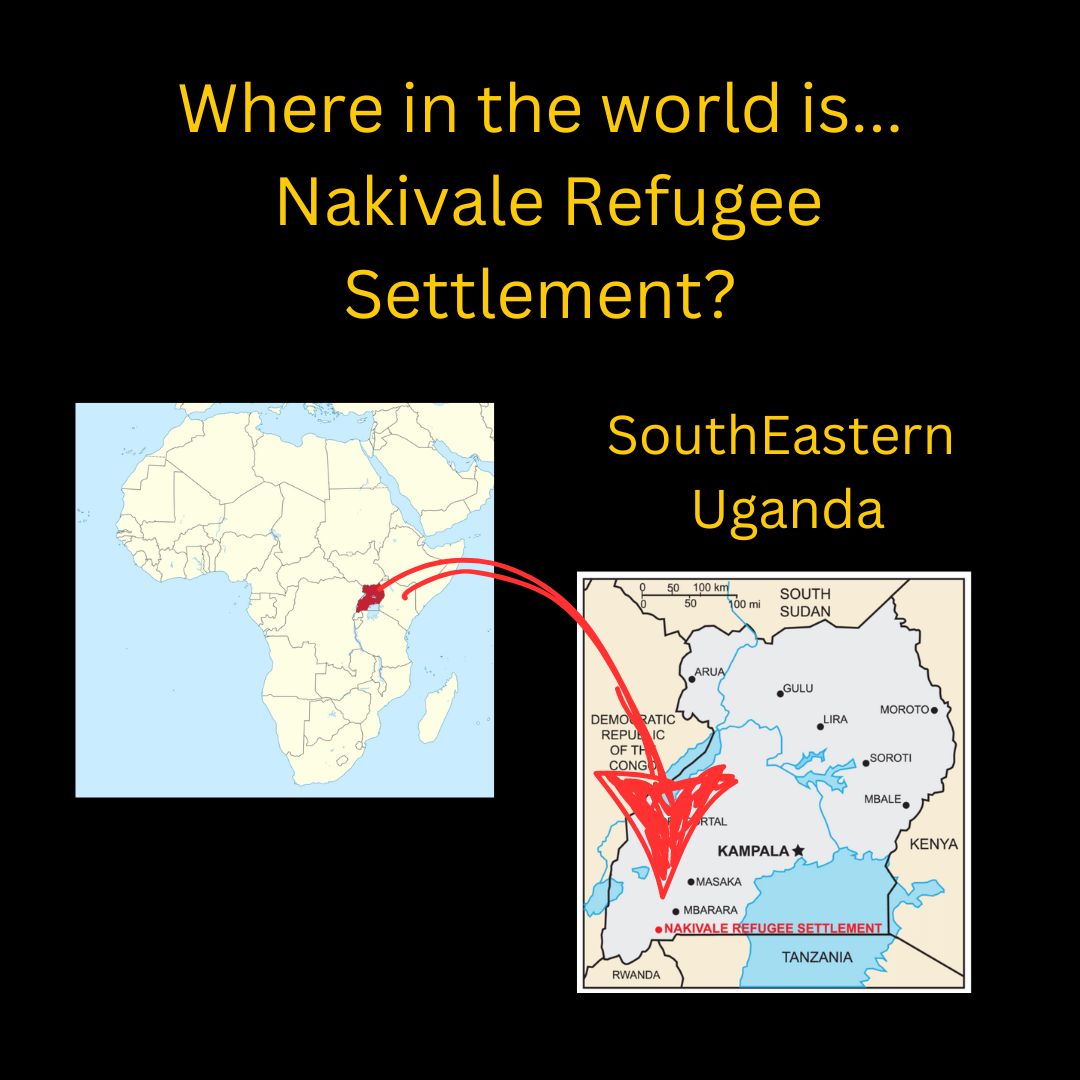
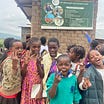
Thank you Emily for bringing the truth about our lives out .
Muhindo you are a real change maker
A true definition of taking advantage of a terrible situation to a positive situation.keep moving hope to learn soon from you Muhindo.
Wow, what a story. I knew some of this, but not all of it. That Muhindo lost his sister, heartbreaking. That he makes beautiful guitars. Wow, wow, wow. I've always thought Muhindo was one of the standout leaders of Nakiavle refugee settlement. Now even more so. Thank you Emily, for bringing this story to life. And thank you Muhindo for being so open with your life story and its heartbreak. Your ability to move beyond the trauma to create real change is a lesson to us all. It is an absolute honour and privilege to know you.